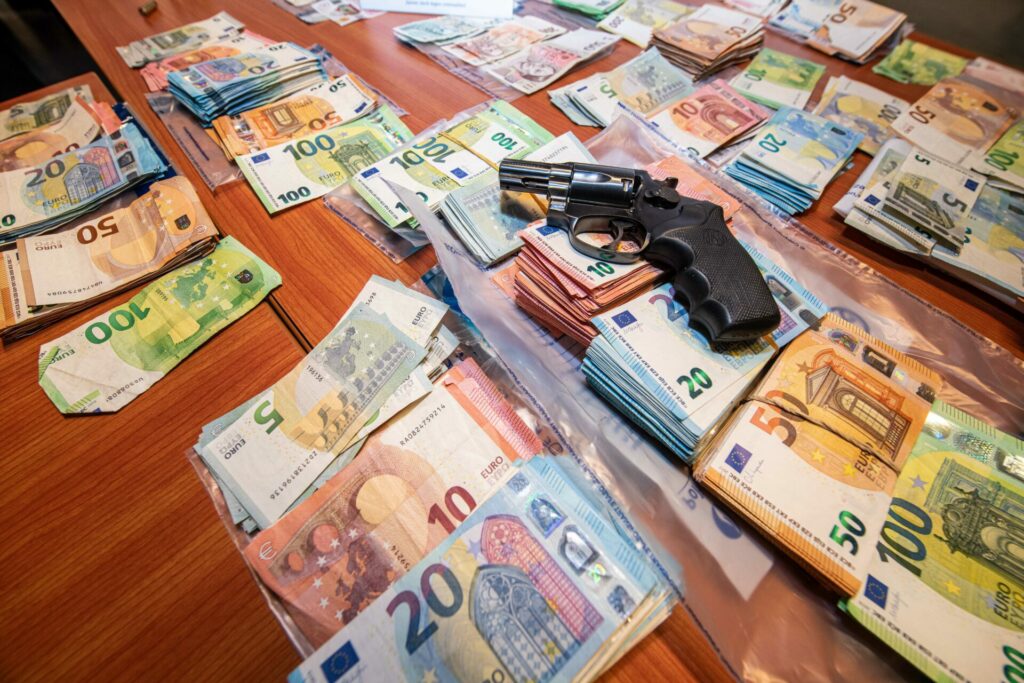Exactly three years since Belgium's biggest-ever judicial and police action took place following the cracking of the criminal crypto-network, Sky ECC, more than 1,000 individuals have been convicted.
The operation on 9 March 2021 involved searches at some 200 locations in Belgium – a coordinated mass mobilisation that targeted all echelons of the drug mafias operating in the country. It came about after a billion encrypted messages on the criminal cryptophone network Sky ECC were cracked by authorities using artificial intelligence and machine learning. This dealt unprecedented blows to the organised crime world.
"In three years, 586 files were created and 1,093 people were convicted," the Federal Judicial Police reported on Saturday. The milestone of 1,000 convictions was surpassed in December 2023.
"Moreover, the Federal Judicial Police hits criminal organisations where it hurts: in their pockets. So far, nearly €183 million has been seized."
Turning blind eye
A total of 592 cases against 4,439 suspects have been launched, with as many as 66% being investigated in Antwerp, the city's public prosecutor's office reported.
The investigations didn't only expose criminal kingpins, they put "every layer of the criminal network into focus" and it quickly became clear that parts of the legal upper world had also been corrupted.
Police gained access to the six million messages being sent per day between major criminals and the people they exploited, including logistics and administrative employees at the ports but also police officers, lawyers, customs officers and even a prosecutor's office employee.
Those working on the cases stressed that the pressure exerted by organised crime on these individuals and the sums they were given to turn a blind eye or leak information were often huge.
Efforts being continued
Information is still being gathered that leads to new investigations. "Over the last year, we have not been idle and new investigations have already been launched," public prosecutor Franky De Keyzer told Het Nieuwsblad. "These criminals are not rid of us yet."
He pointed to privacy and data protection, two key concepts in the investigation that can also be hindrances for investigators. "We have to give these high priority. We do, but at the same time, we prevent criminals and criminal organisations from abusing these principles. They hide behind them, while at the same time unabashedly compromising the security and physical integrity of our citizens."
Despite this harsh crackdown, the drug mafia in Belgium continues to be a major issue, both in Antwerp where street explosions are still regular occurrences, but also in Brussels where turf wars have seen drug-related violence surge again.
Belgium is therefore also working to extradite ringleaders who were already convicted or wanted but are hiding abroad, which has been a longstanding challenge.
Related News
- EU and Latin America strengthen ties to tackle drug trafficking and violence
- 'Vicious cycle': Rising drug violence expected to fuel illegal arms trade
- Just more of the same? Brussels lacks means to better fight drug violence
Recently, however, extradition treaties were established, including with the United Arab Emirates to extradite a cartel leader, known as Nordin El Hajjioui, or "Fat Nordin from the Dam", from Dubai. He started as a small-time drug dealer from Antwerp's Dam neighbourhood but soon became the absolute 'king of coke'.
Meanwhile, Belgium's largest-ever correctional trial, the so-called Encro trial, is still ongoing. The proceedings revolve around drug trafficking, specifically the importation of cocaine from South America and cannabis from Morocco.

